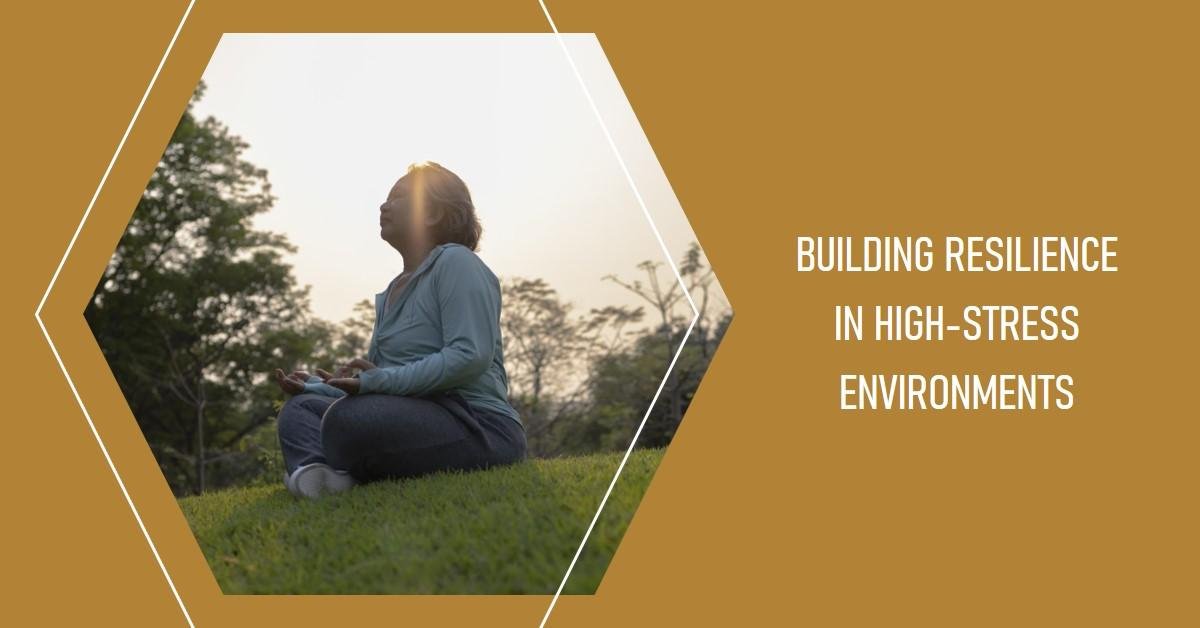Strategies for Building Resilience in High-Stress Environments

In the tumultuous landscape of today's professional world, high-stress environments have become increasingly prevalent. Whether you're navigating a demanding job, juggling multiple responsibilities, or facing unexpected challenges, the ability to thrive amidst pressure is invaluable. Building resilience is not just about surviving; it's about flourishing despite adversity. In this article, we delve into strategies for cultivating resilience in high-stress environments and empower you to conquer challenges with grace and determination.
Understanding Resilience
Resilience is more than just bouncing back from setbacks; it's the capacity to adapt, grow, and thrive in the face of adversity. Individuals with high levels of resilience exhibit a combination of psychological flexibility, emotional intelligence, and problem-solving skills. Rather than being overwhelmed by stress, they possess the resilience to maintain their equilibrium and navigate challenges effectively.
Embracing a Growth Mindset
Central to resilience is the adoption of a growth mindset. Embracing the belief that challenges present opportunities for growth enables individuals to approach stressful situations with optimism and determination. Instead of viewing setbacks as insurmountable obstacles, they see them as temporary setbacks and opportunities to learn and improve.
Cultivating Self-Compassion
In high-stress environments, it's easy to be overly self-critical and judgmental. However, cultivating self-compassion is essential for resilience. Treating oneself with kindness and understanding in the face of failure or setbacks fosters emotional resilience and enables individuals to bounce back more quickly. By acknowledging their humanity and imperfections, individuals can build a strong foundation for resilience.
Developing Effective Coping Strategies
Effective coping strategies are crucial for managing stress and building resilience. This may involve practicing mindfulness and meditation to cultivate inner calm, engaging in regular physical exercise to reduce tension and improve mood, or seeking support from friends, family, or colleagues. Developing a toolbox of coping mechanisms enables individuals to navigate stressful situations with greater ease and resilience.
Setting Realistic Goals
Setting realistic goals is essential for maintaining resilience in high-stress environments. While ambition is admirable, setting unrealistic expectations can lead to burnout and disillusionment. By setting achievable goals and breaking them down into manageable steps, individuals can maintain momentum and motivation, even in the face of adversity.
Fostering Strong Relationships
Strong social support networks are a cornerstone of resilience. Cultivating meaningful relationships with friends, family, and colleagues provides a crucial source of emotional support during challenging times. By nurturing these connections and fostering a sense of belonging, individuals can draw strength from their relationships and weather the storms of life with resilience and grace.
Practicing Adaptability
In rapidly changing environments, adaptability is key to resilience. Rather than resisting change, resilient individuals embrace it as an opportunity for growth and innovation. By remaining flexible and open-minded, they can navigate uncertainty with confidence and resilience, turning obstacles into opportunities for personal and professional development.
Seeking Professional Support
In some cases, building resilience may require professional guidance. Therapists, counselors, and coaches can provide valuable support and tools for managing stress, enhancing resilience, and fostering personal growth. Seeking help is not a sign of weakness but rather a proactive step towards building a stronger foundation for resilience and well-being.
Embracing the Journey
Building resilience is an ongoing process that requires dedication, patience, and self-reflection. It's not about achieving perfection but rather embracing the journey of growth and self-discovery. By cultivating resilience, individuals can navigate high-stress environments with confidence, grace, and resilience, emerging stronger and more empowered than ever before.
Conclusion
resilience is not an innate trait but rather a skill that can be cultivated and nurtured over time. By adopting a growth mindset, cultivating self-compassion, developing effective coping strategies, and fostering strong relationships, individuals can thrive in high-stress environments and emerge stronger and more resilient than ever before. Embrace the journey of resilience, and remember that with determination, support, and perseverance, you can conquer any challenge that comes your way









